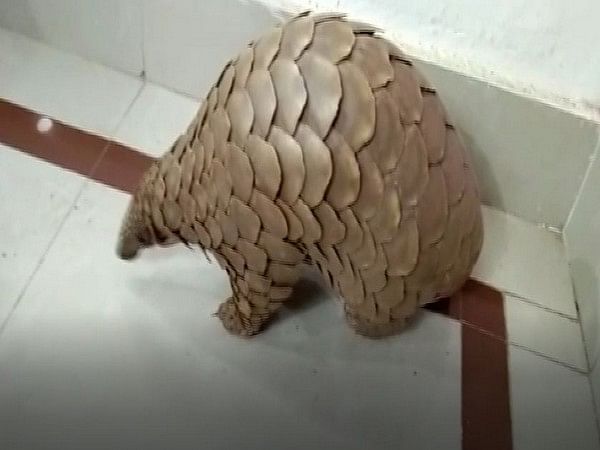Naypyidaw [Myanmar], April 1 (ANI): Since February 1 military coup last year, the online trade in endangered wildlife species and products rose to 74 per cent.
As per the World Wildlife Fund (WWF) report released on Friday, the illegal online transactions of endangered wildlife species rose 74 per cent in 2021.
Sebastian Strangio, Southeast Asia Editor at The Diplomat said that the report offers further evidence of the extent to which Myanmar’s already significant illicit economy has swelled in the 14 chaotic months since the coup, which has been marked by a near-collapse of the formal economy and inflamed political conflict across the country.
The conservation group noted that most of these transactions involved the sales of live animals, including pangolins, which are hunted for their meat and for their scales, which have supposed medicinal benefits, reported The Diplomat.
Among the 173 species that changed hands in online transactions were bears, gibbons, Tibetan antelopes, and giant tortoises, as well as numerous species of monkeys that are often bought as pets. Fifty-four of the identified species are threatened with global extinction, said the report.
The trade in endangered wildlife, both live animals and animal parts, has long flourished in the borderlands of Myanmar, Thailand and China.
It has grown steadily in line with increased economic integration within the region and with an increasingly wealthy China, which by virtue of its size has amplified the regional demand for exotic animal products, said Strangio.
In June 2021, the advocacy group TRAFFIC reported that it had observed “a clear shift from physical marketplaces to e-commerce websites and social media platforms.” It said that social media platforms were now “the preferred medium for wildlife traffickers to connect with buyers in many regions around the world.”
The WWF report found that most of the transactions in Myanmar took place via Facebook. The group identified 639 Facebook accounts belonging to wildlife traders, in addition to a trading group that had more than 19,000 members.
The fact that so many wildlife transactions take place in the open on Facebook groups suggests that such dealings remain “largely risk-free,” the report said.
The findings of the report are in many ways no surprise. Since the coup, the formal economy has atrophied, contracting by nearly a fifth in 2021, and the weakening hold of the central state has led Myanmar’s illicit economy to surge to the fore.
Moreover, as the Myanmar military comes under increasing economic sanction from the West, it will come to rely more heavily on these subterranean flows of cash, said Strangio. (ANI)
This report is auto-generated from ANI news service. ThePrint holds no responsibility for its content.



